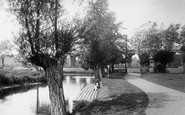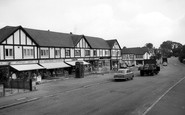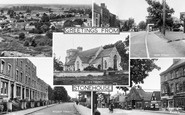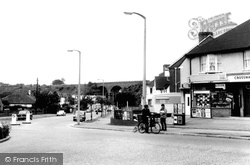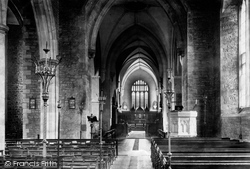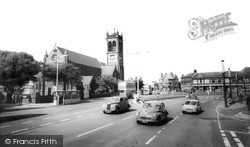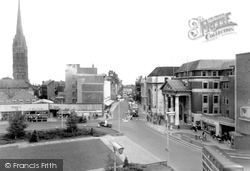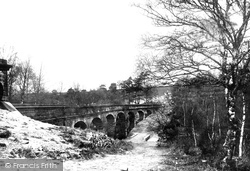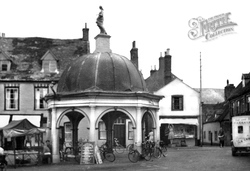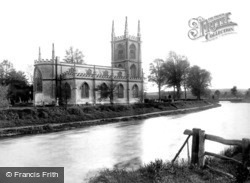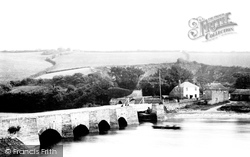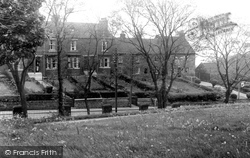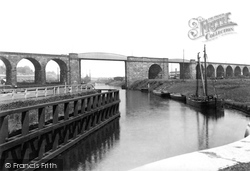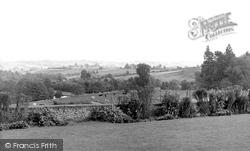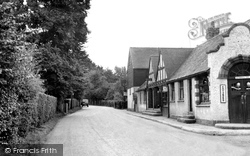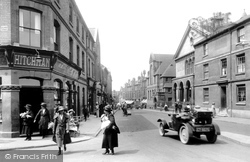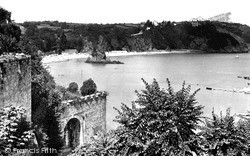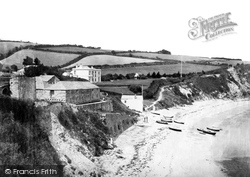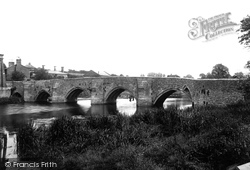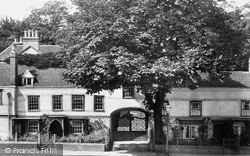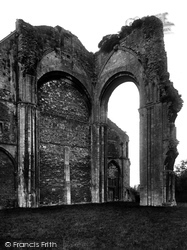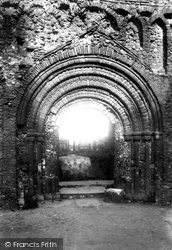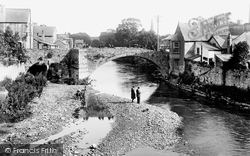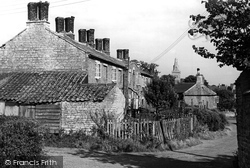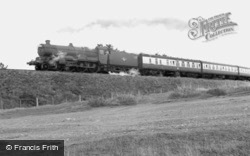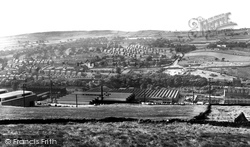Places
Sorry, no places were found that related to your search.
Photos
5 photos found. Showing results 301 to 5.
Maps
83 maps found.
Books
Sorry, no books were found that related to your search.
Memories
1,127 memories found. Showing results 151 to 160.
Chelmsford, The Recreation Ground, 1895
Through all the trees, you can see in the background the spans and arches that make up the railway viaduct. The footpath exists still today although in some what different surroundings. Where the little girl is seated at a boating stage, well, this went many years ago.
A memory of Chelmsford by
Chelsfield, Worlds End Lane And Warren Road
The picture of Windsor Drive is so evocative for me. I spent the first 5 years of my life living with my parents in my grandmother's council house in Sandpit Road on the Downham Estate at the bottom of ...Read more
A memory of Chelsfield in 1953 by
Chickenley 1965 To 1973
I was born in Dewsbury in 1965 and moved to Chickenley when i was 1 and a half,i no longer live there,we moved out in 1977 to the West Country,it was great growing up in Chickenley.I remember as kids playing on the ...Read more
A memory of Chickenley in 1973 by
Childhood
I was born in London, and my family moved to Culberry Cottage in East Pennard when I was about 8yrs or 9yrs old. That was a short but happy stay in the area amongst the farm lands, animals and walks in the fields picking wild ...Read more
A memory of East Pennard in 1951 by
Childhood
I remember spending the first twelve years of my life in Haltwick, we lived in Sunnny Side Cottage, my brother and I would go down past the pub to get water from the well and we would play in the woods and fields. We moved to Dane End ...Read more
A memory of Dane End in 1946 by
Childhood
I lived in Old Coulsdon for many years, I used to do a paperound for Mr Cook who ran the paper shop on the Brighton road in Old Coulsdon. I spent many my summer holidays exploring Happy Valley and Devils Dyke and I used to be albe ...Read more
A memory of Old Coulsdon by
Childhood
I was born in Colliers Wood but moved to Tooting soon after and lived in Fishponds Rd throughoutthe Second World War, I attended Broadwater Road School and Ensham Central in Fransiscan Road. I must admit I don't remember the war very ...Read more
A memory of Tooting in 1940 by
Childhood & Youth In West Kilburn
After the war, my brother David & I returned to Kilburn from evacuation. Our Smith family was re-united at 28 Kilburn House, Malvern Place, where mum (Isobel) continued to live during the Blitz. Dad ...Read more
A memory of Kilburn by
Childhood 1952 Onwards
I think Stonehouse had something for every age growing up. Brownies, cubs, scouts, and guides. A youth club and a coffee bar. Always somewhere to explore, the canal, Doverow for sledging, the brickworks and always ...Read more
A memory of Stonehouse in 1952 by
Childhood Days
My name is Peter Warner. I spent many holidays at Upper Dean in the 1930s. My uncle was a farmer at Top Farm. I was also evacuated to Dean during the Second World War and attended Dean school. It remains to this day my favourite ...Read more
A memory of Upper Cuts in 1930 by
Captions
1,233 captions found. Showing results 361 to 384.
crossroads was a thriving commercial intersection at which three north eastern suburbs meet - Llanishen to our right, Cyncoed to our left and Heath straight ahead through the railway arches
At the east end of the nave aisle and on each side of the chancel arch are large brass posts with decorated candle holders, five in all.
The buildings all survive but the whole view has changed considerably with, believe it or not, a much narrower road.
In the picture we have two buildings from the 1930s: Lloyd's Bank (1932) with its giant arch, and the National Provincial Bank with its neo-classical portico.
There are two massive bridges in the town, and before the line east reaches another viaduct at Golcar, it passes over these smaller seven arches opposite the town of Linthwaite.
The Butter Cross was built in 1689, after the fire of the previous year which destroyed much of the town.
The flagpole is still in place, and only the trees have grown, creating a much more rustic scene than is evident here.
This photograph shows the old four-arched bridge over the estuary. There has been a crossing here since the 10th century. In the background, hedges snake their way up over the slopes.
At the right-hand end of the terrace is the Queen's Arms, a much earlier stone building.
Standing high above all three, it consists of 48 arches plus the two girder spans near the middle shown here.
Although much of St Peter's church dates from as recently as the 14th century, there are signs of a much earlier church on the site.
The much-expanded village rests on an ancient site - the remains of a Roman house were found here, and the church has Saxon foundations.
In the picture we have two buildings from the 1930s: Lloyd’s Bank (1932) with its giant arch, and the National Provincial Bank with its neo-classical portico.
The gabled building on the right with the arches is the Fuller Baptist Church, named after Andrew Fuller, who founded the Baptist Missionary Society.
Inside, two great arches culminate in chimneys which project into the garden.
Small fishing boats are drawn up on the beach, a ramp climbs past the fish cellar, and on the extreme left we can just see an arched incline to a limekiln which was in use from at least 1835
With its five arches, this ragstone bridge over the River Medway is said to be the finest medieval bridge in the south of England.
These, along with the arch, were moved from either St Michael's or one of the London churches and rebuilt at the Chantry by Sir Walter Gilbey.
This photograph shows the great arch at the eastern end of the abbey. It formed part of the structure above which was built the lantern tower and spire.
This view, through the great west door with limestone in the arches, shows the building materials well: Roman bricks, septaria and flint.
Two of the small arches were replaced with one large one, which explains why the bridge is not symmetrical.
The terrace of cottages in Allotment Lane has ragstone walls and a brick main façade; there is a low pediment at the centre with an arched window.
The train is seen from the Carlyon Bay golf course near the Crinnis arch. Diesel locomotives made their first appearance in the late 1950s, and the last steam train ran in 1964.
Stone from here was used to build Sheffield's Wicker Arches that carried the Manchester railway line from 1848 to 1969.
Places (0)
Photos (5)
Memories (1127)
Books (0)
Maps (83)

